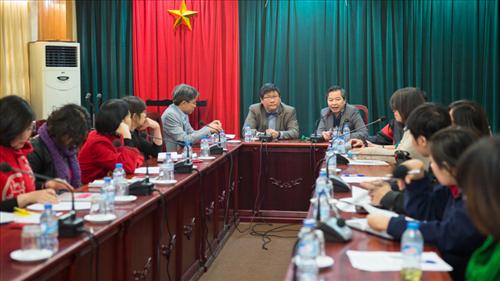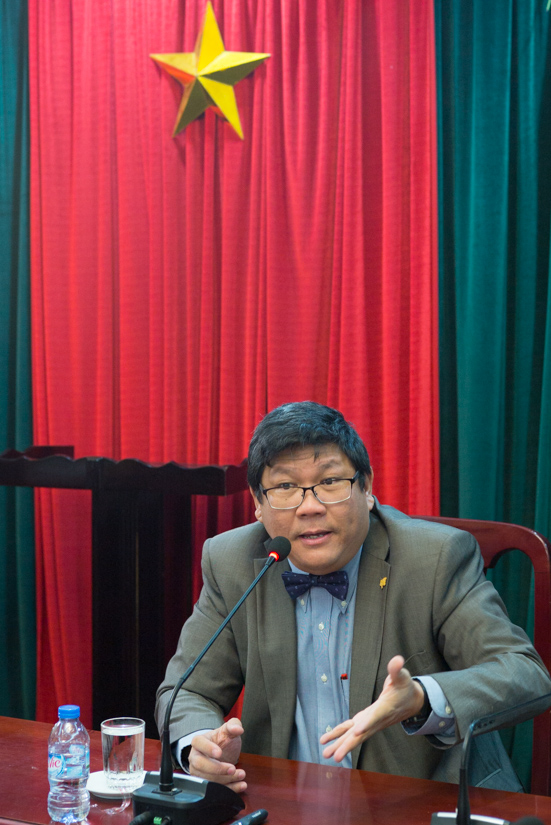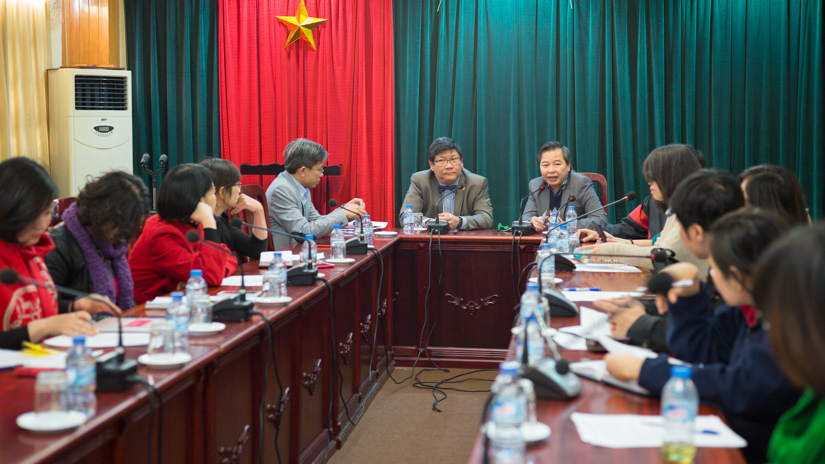
“Publish or die” is the motto of many universities and research institutes in the US, said Prof. Dr. Ooi Keat Gin. Most researchers and those working in the academic environment are signed to annual contracts. The most important factor in extending the contract is the quality of the scientist’s work, as shown in research and publications.If there is no publication, then you are history, and your contract ends here.!” - Prof. Dr. Ooi Keat Gin said. Many top universities in the US even require at least 3 articles published in top journals within 5 years.

Prof. Dr. Ooi Keat Gin/Photo: Jackie Chan
“Publishing is your way of expressing yourself.” and that is especially important for a scientist’s career. It is a measure of a researcher’s career progress. Do you receive recognition from your colleagues? Do you receive awards, scholarships or grants for your research? Who are your connections in the industry and who are your partners? Have you ever been invited to lecture at other universities? Are you known by international scholars? ... All of these are indicators of a scientist’s research capacity and academic reputation.
Professor Ooi Keat Gin believes that there is a difference between a real scientist and a researcher. A real scholar does not consider research as a job to earn money. Research is an ideal, done voluntarily, devoting all their heart to pursuing scientific issues that interest them. They want to find new things, get to the bottom of the problem, and share their own views. That is a personal need, motivated by the desire to improve themselves. They do it not for awards, nor because of pressure from superiors, universities, or for a raise.
Prof. Dr. Ooi Keat Gin also shared the fact that if there are quality international publications or announcements, scientists will not have difficulty receiving investment funds for their research activities. Good scientists are always paid fairly by universities.

Sharing more about the experience and skills needed to publish research in international journals, the scientist said that the most important thing is the novelty of the research, no duplication in approach, perspective, viewpoint... The presentation needs to be clear, coherent, convincing, and state your own contribution in the research field.
And another fact that young scientists need to pay attention to is the language issue, specifically English in international publications.If your English is not up to international standards, you must make sure you have someone proofread and check it for you before you submit your work." - Professor Ooi Keat Gin emphasized.
Prof. Dr. Ooi Keat Gin also advised that it is necessary to have a specific strategy for submitting articles to journals, and especially to clearly understand the journal and the editorial team of the journal in which you want to publish your article.I encourage you to submit to major journals, reputable journals in your niche..They will get to know you better. And finally, accept exchanges and discussions about the article in a positive way to be able to complete the research in the best way possible”- scientist shared.
|
Prof. Dr. Ooi Keat Gin is Professor of History at the Asia-Pacific Research Unit (APRU-USM) (School of Humanities, Universiti Sains Malaysia, Penang, Malaysia), and Editor-in-Chief of the international journalInternational Journal of Asia-Pacific Studies(IJAPS). Professor Ooi Keat Gin has been honored with many prestigious publications published by Oxford University Press, Macmillan Palgrave, ABC-Clio, Scarecrow Press, St Martin's Press, Routledge and by units such as Ohio University, University of Hull, Academia Sinica... Many of his studies have been published in leading journals such asModern Asian Studies,Indonesia and the Malay World,Journal of Southeast Asian Studies,Journal of Colonialism and Colonial History,The Historian,Sarawak Museum Journal,Borneo Research Bulletin,Journal of the Malaysian Branch Royal of the Asiatic Society,Journal of Australian War Memorial... Prof. Ooi has lectured and conducted research at the Australian War Memorial (Canberra, Australia); Centre for South-East Asian Studies, University of Hull (Hull, UK); International Institute of Asian Studies (Amsterdam/Leiden);Nederlands Instituut voor Oorlogsdocumentatie(Amsterdam); Center for Asia Pacific Social Transformation Studies, University of Wollongong (Wollongong, Australia)... Recently, he was a visiting professor at the Department of Sociology, University of Michigan, Ann Arbor, USA; visiting professor at the Academy of Brunei Studies, Universiti Brunei Darussalam, Brunei; and senior research fellow at the Center for Southeast Asian Studies (CSEAS), Kyoto University, Japan. |
Author:Thanh Ha
Newer news
Older news